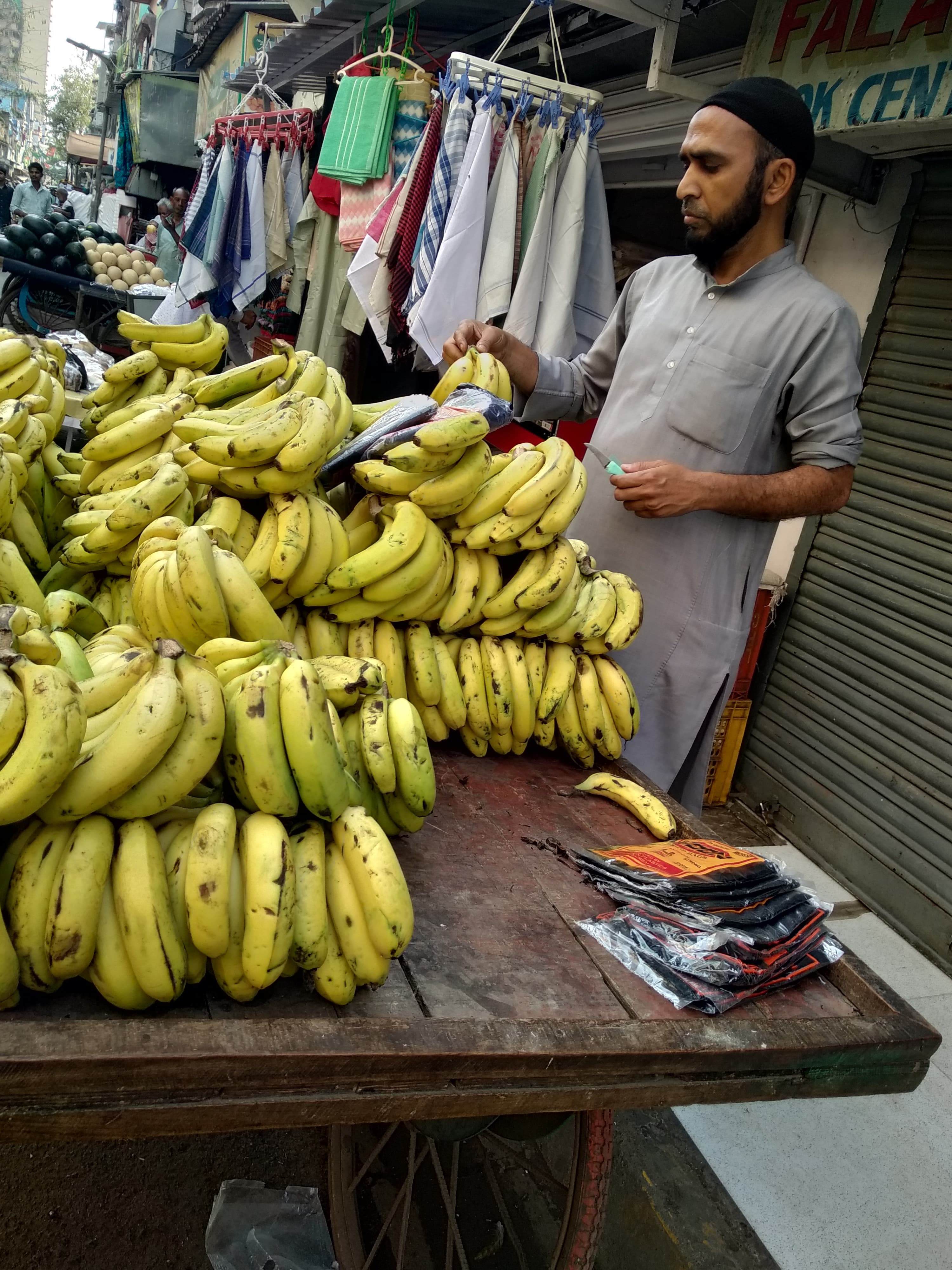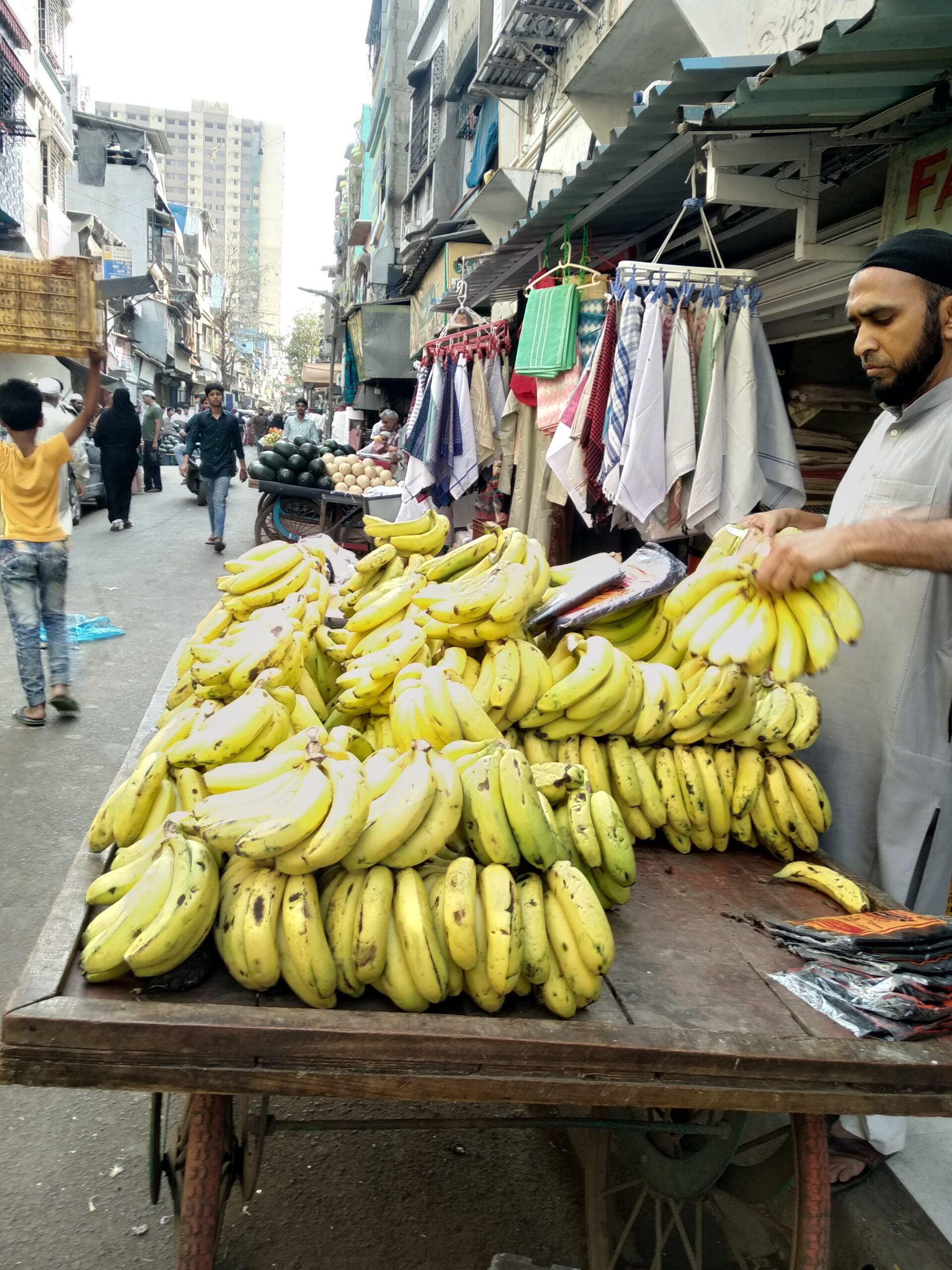Ramadan Special: A fruit seller’s story of hard work, dedication and unwavering spirit

The day dawns for him with the call to Fajr prayer. After performing one of the five mandatory prayers, he leaves home by 6 am — pushing his empty cart to Tatanagar, the main market. It’s a brisk 4-kilometer walk; but for Rafiuddin, it is more than just transportation. These early morning hours are a time for quiet reflection and a chance to greet the day with fresh energy and a focused purpose.
“Instead of covering such a long distance everyday, why don’t you get it delivered at a place close to your cart,” asks this reporter. He explains, “Buying the fruits directly from the stockist has a dual advantage: it is cost effective for me and ensures quality.”
By handpicking, the fruit seller ensures that his customers get the freshest produce possible. He may walk a bit farther and spend more time, but for him, it’s a worthwhile investment in both his business and his customers’ satisfaction.
He says he earns around Rs 500 a day or around Rs 15,000 a month.
How does he manage to meet family expenses and afford his rented accommodation in this modest income at a time when there is skyrocketing inflation?
“It’s difficult for sure,” he admits with a smile on his face, adding, “I am sailing the boat against the waves with the hope that it will reach the shore one day.”
His two sons are in higher secondary school and preparing for medical entrance examinations. “Once they complete their education and settle, we will have some relief,” he says.
After offering his morning prayers, pushing his empty cart, he leaves for the market at 6 am. By 8 am, he returns to the designated spot near a mosque where he sells the fruits on his cart.

The location next to the mosque proves to be a blessing. It allows him to easily step away for midday prayers without worrying about his cart.
Around 2 pm, his son joins him, offering a much-needed break. They head home for a shared lunch on normal days and a short rest but during Ramadan he uses this time for additional prayers. By 6 pm, Rafiuddin is back at that place, ready to navigate the peak evening hours.
He remains there until the city sleeps, often as late as 2 am. Finally, with a weary but satisfied smile, he grabs a late dinner and catches a few hours of sleep before repeating the cycle all over again from 5 am the next day.
“Yes, my schedule stays pretty same during Ramadan,” he says, adding that the only difference is that he stops selling fruits after sunset, when it’s time to break the fast.
“Ramadan is a holy month, and I use the time I spare to perform additional prayers,” he says.
Working such long hours is not so easy, especially while fasting. How does he manage it?
“It’s challenging, for sure,” he admits, saying, “Faith keeps me going.”
Life as a street vendor isn’t easy for him. The biggest worry is the municipal tow trucks. If they catch him selling without a permit, they can take his entire cart.
Sometimes, they even demand a hefty fine to return it. Even worse, they might just dump all his fruits on the ground, leaving him with nothing to sell.
But over the years, he has learned to navigate these challenges. He's chosen a spot closer to the mosque, which offers a sense of security and allows him to keep an eye on his cart during prayers.
